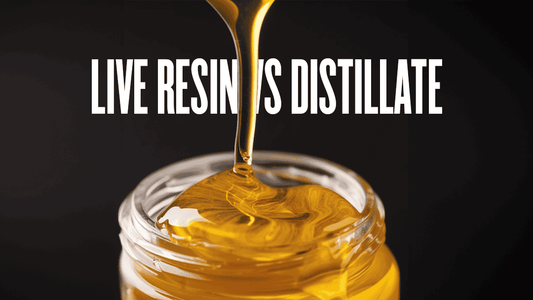In the last decade, the global cannabis conversation has shifted dramatically. From the busy dispensaries in California to cannabis cafés in Amsterdam, legal weed is quickly becoming normal.
But here in the UK, many people wonder: when will weed become legal in the UK? The answer is not simple, but there is more political support and public interest. This suggests that change is coming.
A Nation in Waiting for Cannabis Legalisation
In 2018, the UK government took a tentative step forward by legalising cannabis for medical use in limited circumstances. This marked a historic moment in British drug policy, officially acknowledging cannabis as a medicine for the first time and cannabis based products could be legally purchased with a prescription.
However, for most people, access to medical cannabis through cannabis clinics remains elusive. Strict guidelines, limited prescribers, and high costs mean only a few thousand patients can benefit from this change.
Meanwhile, few legal alternatives remain for the general public. The best option for UK consumers today is CBD flower and hash, which still come from the cannabis plant. These products have no more than 0.2% THC. They provide the look, taste, and experience of cannabis without the high. It's legal, lab-tested, and growing in popularity.
What Do UK Politicians Say?
Cannabis legalisation is a topic that divides British politics, often cutting across party lines. Here’s what some of the UK’s most influential political figures have said:
Sadiq Khan (Mayor of London)
In May 2025, Khan backed the London Drugs Commission’s suggestion to decriminalize having small amounts of natural cannabis.
"The current sentencing for those caught in possession of natural cannabis cannot be justified given its relative harm and people's experience of the justice system."
He advocates for a fundamental shift toward education, public health, and fair policing.
Keir Starmer (Leader of the Labour Party)
Starmer has remained firmly against legalising cannabis:
"Labour does not support changing the law on drugs. Drug policy is not devolved to mayors and under Labour would continue to be set by national government." — 2022 statement
Angela Rayner (Deputy Prime Minister)
Though she acknowledged youthful experimentation, Rayner aligns with the Labour stance of no reform.
William Hague (Former Conservative Leader)
Hague is one of the few Tories to break rank:
"The UK’s drug policy is inappropriate, ineffective, and utterly out of date."
In 2018, he urged then-PM Theresa May to legalise cannabis.
Boris Johnson (Former Prime Minister)
Earlier in his career, Johnson seemed relaxed about cannabis, but as PM he avoided the issue entirely. He did not implement any reforms under his leadership.
David Cameron (Former Prime Minister)
While open to reform as an MP, Cameron rejected any liberalisation of drug laws while in office:
"Drugs are illegal because they are harmful—they destroy lives and cause untold misery."
Norman Lamb (Lib Dem MP)
Lamb is one of the most outspoken advocates for full legalisation:
"Our approach is hypocritical. Legalisation would lead to a safer society."
He introduced a bill in 2018 pushing for full legalisation.
Tim Farron & Paul Flynn (Lib Dem & Labour MPs)
Farron believed the "war on drugs is over", advocating for a health-based approach. Flynn once invited people to consume cannabis at Westminster in protest of prohibition.
Mo Mowlam (Former Cabinet Minister)
Perhaps the boldest of all, Mowlam called for international legalisation of all drugs, citing the failure of prohibition.
A Conflicted Direction for UK Cannabis Legalisation
Despite progressive voices like Sadiq Khan calling for decriminalisation, recent developments suggest a conflicting narrative.
In 2025, Philip Wilkinson, the Police and Crime Commissioner of Wiltshire, supported changing cannabis to the highest level of controlled drug. He wanted to move it from a Class B drug to a Class A drug. This change would greatly increase the severity of sentences and penalties for cannabis-related crimes. According to the BBC, Wilkinson stated:
"I have seen first-hand how cannabis cultivation and use are deeply intertwined with a spectrum of criminal activities in my county."
He argued that cannabis is a "gateway drug." He said it helps fund organized crime, including modern slavery and human trafficking.
The Home Office responded firmly, stating it has "no intention of reclassifying cannabis from a Class B substance under the Misuse of Drugs Act". The difference in public speech shows the ongoing struggle in the UK's cannabis debate.
On one side are progressive reformers. On the other side are hardliners.
This tension goes a long way in explaining why the UK continues to lag behind Europe in cannabis policy. Without a unified vision, meaningful reform remains slow, inconsistent, and politically risky.
How Does the UK Compare to Other Countries?
To understand the UK's position, we can look at how other countries have legalized weed. We can see their timelines and how long it took to go from decriminalization to full implementation.
🇺🇾 Uruguay
- Decriminalised: 1974
- Medical and Recreational Legalised: 2013
- Sales Began: 2017
- ⏳ ~39 years from decriminalisation to full framework
- ⏳ ~4 years from policy proposal to full implementation
🇨🇦 Canada
- Medical Legalised: 2001
- Recreational Legalised: 2018
- Cannabis Act Introduced: 2017
- ⏳ ~17 years from medical to recreational
- ⏳ ~1.5 years from bill to rollout
🇺🇸 United States (Selected States)
Colorado:
- Medical: 2000
- Recreational: 2012 (vote)
- Sales: 2014
- ⏳ ~12 years from medical to rec legalisation vote
- ⏳ ~1 year to implement
California:
- Medical: 1996
- Recreational: 2016 (sales in 2018)
- ⏳ ~20 years from medical to recreational legalisation
🇲🇽 Mexico
- Supreme Court Ruling: 2018
- Recreational Use Legalised: 2021 (no framework)
- ⏳ Still no regulatory system despite legal status
🇩🇪 Germany
- Medical Legalised: 2017
- Recreational Legalised: 2024 (home grow & clubs)
- ⏳ ~7 years from medical to adult-use start
- ⏳ ~2 years from proposal to rollout
🇲🇹 Malta
- Medical Legalised: 2018
- Recreational Legalised: 2021
- Cannabis Clubs Began: 2024
- ⏳ ~3 years from medical to recreational
- ⏳ ~1 year from proposal to law
🇱🇺 Luxembourg
- Decriminalised: 2001
- Medical Legalised: 2018
- Recreational Home Growing Legalised: 2023
- ⏳ ~5 years from medical to limited recreational
- ⏳ Retail sales still not available
🇿🇦 South Africa
- Court Ruling on Personal Use: 2018
- Private Use Bill Introduced: 2024
- ⏳ Still no regulated sales; partial legalisation
🇬🇧 United Kingdom (Current Status)
- Medical Legalised: 2018
- Recreational: Illegal
- Sales: Illegal
- ⏳ 6+ years since medical legalisation with little progress
The UK is falling behind, especially compared to countries like Malta, Germany, and Canada. Most nations see recreational reform within 5–10 years of medical legalisation. If the UK takes a similar route, we might see a change by the late 2020s. This will happen only if political leaders agree with what the public wants.
Public Opinion vs. Political Paralysis
The divide between the public and Parliament is striking. Recent polls suggest the majority of Brits support the legalisation or at least decriminalisation of cannabis for personal use. Yet, Westminster continues to stall.
- 60%+ of adults favour legalising recreational cannabis
- 83% support broader access to medicinal cannabis
- UK ranks among the slowest in Europe for drug policy reform
Why the gap? Political risk, party infighting, and a lingering stigma around cannabis users all play a role. While countries like Germany, Switzerland, and Malta advance progressive reforms, the UK remains in limbo.
Is Change on the Horizon?
Although full legalisation isn't imminent, several key factors suggest it might not be as far off as it seems:
1. Medical Cannabis as a Gateway Policy
Most countries that legalise recreational cannabis start by expanding medical access. If the NHS or private providers make prescriptions more available, demand will grow for a parallel recreational market.
2. Economic Incentives
Legal cannabis could bring billions into the UK economy through taxes, jobs, and tourism. The Treasury would be hard-pressed to ignore this potential forever.
3. Police & Judicial Reform
Police across the UK spend enormous resources enforcing cannabis laws. Decriminalisation could reduce costs and ease pressure on courts.
4. Regional Decriminalisation Trials
Sadiq Khan's London Drugs Commission suggests that metro areas could pilot decriminalisation policies, putting pressure on Westminster to act.
5. Cultural Normalisation
The boom in CBD flower and cannabis wellness products is changing how Britons view the plant. What was once taboo is now mainstream.
What Happens If Cannabis Becomes Legal?
Let’s imagine cannabis is legalised for recreational use in the UK. Here’s how it might look:
- Age Restrictions: Likely 18+, with ID verification
- Licensed Dispensaries: Retailers licensed by the government
- Home Cultivation: Possibly limited to 3-6 plants per household
- Taxes: High excise tax on cannabis products
- Regulated Potency: THC limits and lab testing for safety
- Advertising Restrictions: Similar to tobacco and alcohol regulations
Until Then: Legal Cannabis Alternatives
While we wait for full legalisation, the closest legal option to weed in the UK remains CBD flower. Brands like HempElf offer a range of lab-tested, aromatic, non-psychoactive buds. They deliver the full sensory experience of cannabis without the legal risk.
Final Thoughts
So, when will weed become legal in the UK? The short answer: not tomorrow. The long answer: probably sooner than you think.
Public opinion is changing. Other countries are finding success. Key political leaders are asking for change. It’s not a matter of if change will happen, but when it will happen.
Still, the recent call to reclassify cannabis as a Class A drug shows just how divided the conversation remains. Until politicians agree on a plan and the stigma around cannabis goes away, real change will take time. In the meantime, legal cannabis options keep growing. Whether you're exploring CBD for wellness or staying informed on the legal fight, one thing is certain: the UK cannabis conversation is heating up.

 4.7 Rating. Excellent.
4.7 Rating. Excellent.






